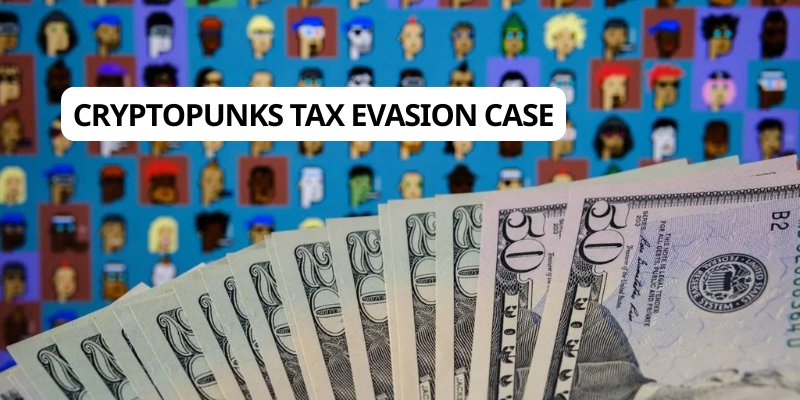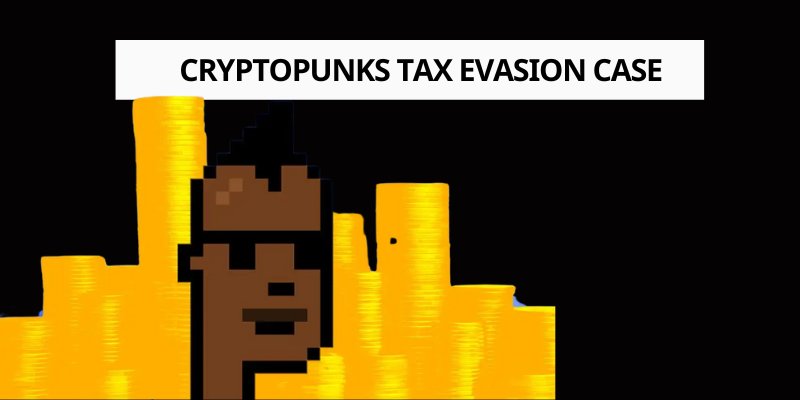The world of non-fungible tokens (NFTs) has been a whirlwind of innovation, speculation, and staggering profits since its meteoric rise in 2021. Among the most iconic collections, CryptoPunks has stood as a cultural and financial juggernaut, commanding millions in sales and redefining digital ownership.
However, beneath the surface of this digital gold rush lies a growing tension with regulatory authorities, as evidenced by a groundbreaking legal case in the United States. In a first-of-its-kind prosecution, a U.S. investor, Waylon Wilcox, faces up to six years in prison for evading over $3.3 million in taxes on profits from trading 97 CryptoPunks NFTs.
This case not only marks a pivotal moment for the NFT industry but also serves as a clarion call for investors navigating the murky waters of cryptocurrency taxation.
The Rise and Fall of an NFT Trader
Waylon Wilcox’s story is emblematic of the NFT boom. Between 2021 and 2022, Wilcox capitalized on the skyrocketing popularity of CryptoPunks, a collection of 10,000 pixelated digital avatars created by Larva Labs. These NFTs, initially distributed for free in 2017, became a status symbol in the crypto world, with individual pieces fetching millions at auction. Wilcox’s 97 CryptoPunks generated over $13 million in revenue, a staggering sum that placed him among the elite traders of the era. Yet, his failure to report this income to the Internal Revenue Service (IRS) would prove to be his undoing.

According to court documents, Wilcox deliberately concealed his earnings, employing tactics to obscure the traceability of his transactions. This was no small oversight; the IRS estimates that his actions resulted in a tax liability of approximately $3.3 million. In a plea deal, Wilcox admitted guilt, acknowledging the severity of his actions. The consequences are stark: a potential six-year prison sentence and significant financial penalties. This case underscores a critical reality for NFT traders: the taxman is watching, and the days of unregulated profits are drawing to a close.
A Landmark Case for NFT Regulation
The Wilcox prosecution is historic, marking the first criminal case in the U.S. centered on tax evasion through NFT transactions. While cryptocurrency taxation has been a contentious issue for years, NFTs introduce additional complexity. Unlike traditional cryptocurrencies, NFTs are unique assets, often tied to speculative value rather than utility. This uniqueness has led some investors to mistakenly believe that NFT profits fall outside the purview of tax authorities. The IRS, however, has made it clear that all income, including that from NFT sales, is taxable.
This case signals a broader crackdown on non-compliance in the digital asset space. The U.S. Department of Justice (DOJ) and IRS have intensified efforts to monitor blockchain transactions, leveraging advanced analytics to trace funds across decentralized platforms. For NFT investors, this means greater scrutiny of their portfolios, particularly for high-value collections like CryptoPunks. The Wilcox case serves as a precedent, warning that ignorance or deliberate evasion will no longer be tolerated.
The Role of TRON and Blockchain Ecosystems
The article from Coin68 also hints at the involvement of TRON, a blockchain platform founded by Justin Sun, in the broader NFT ecosystem. While specific details tying TRON to Wilcox’s case are sparse, the platform’s role in facilitating NFT transactions cannot be ignored. TRON has positioned itself as a low-cost, high-speed alternative to Ethereum, attracting developers and traders alike. Its integration with NFT marketplaces and decentralized applications (dApps) has made it a hub for digital collectibles, potentially including CryptoPunks transactions.
However, TRON’s prominence also draws regulatory attention. As governments worldwide grapple with the tax implications of blockchain-based assets, platforms like TRON may face increased pressure to comply with reporting requirements. The Wilcox case highlights the need for blockchain ecosystems to adopt transparent mechanisms, ensuring that users are aware of their tax obligations. Failure to do so could invite further regulatory action, stifling innovation in the sector.
Implications for the NFT Market
The fallout from this case extends beyond Wilcox’s personal fate. For the NFT market, it represents a turning point. The era of unchecked speculation is giving way to a more regulated environment, where compliance is paramount. Investors must now contend with the reality that their digital wallets are not beyond the reach of tax authorities. This shift could dampen enthusiasm for NFTs, particularly among retail investors accustomed to operating in a regulatory gray zone.
Yet, there is a silver lining. Greater clarity around taxation could legitimize NFTs as an asset class, attracting institutional capital and fostering long-term growth. Projects like CryptoPunks, which have already achieved mainstream recognition, are likely to weather this storm. However, smaller collections and speculative ventures may struggle to adapt, facing a market increasingly dominated by compliance-conscious players.
For NFT enthusiasts, the Wilcox case is a wake-up call. Tax planning must become a cornerstone of any investment strategy in the digital asset space. Engaging with tax professionals familiar with cryptocurrency and NFT regulations is no longer optional—it is essential. Additionally, investors should leverage tools to track their transactions accurately, ensuring compliance with IRS guidelines.

The broader crypto community must also advocate for sensible regulations that balance innovation with accountability. The Wilcox case demonstrates that regulators are catching up with the technology, and proactive engagement could shape a more favorable future for NFTs. Platforms like TRON have a role to play, offering educational resources and compliance tools to their users.
The prosecution of Waylon Wilcox for tax evasion in the sale of CryptoPunks NFTs is a watershed moment for the digital asset industry. It underscores the growing pains of a market transitioning from its Wild West origins to a regulated frontier. As the IRS and DOJ tighten their grip, investors must adapt or face severe consequences. The case also highlights the evolving role of blockchain platforms like TRON, which must navigate a delicate balance between innovation and compliance. For CryptoPunks and the broader NFT ecosystem, this is not the end but a new chapter—one where transparency and accountability will define success.

